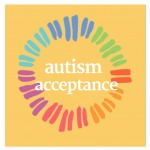
It all started with Sally talking about her belief that autistic people need to do dominate the discourse on autism, as they’re the experts on their own experience (I do agree, by the way. Who better to talk to about the experience of being autistic, and the needs and desires of autistic people, than autistic people themselves?) Jane agreed as well, but voiced a concern that some autistic people need to made aware of how they present to others to be sure they’re not coming across as “snappy”.
And we were off and running.
Oh, Online Arguments…
Twitter isn’t the ideal platform on which to have a discussion like this, especially with four people involved. It was difficult to track to whom each person was talking and to what point each point each person was responding. Points and questions get lost. And, as in any medium where you can’t see anyone’s face or hear their voice, online words get taken in ways in which they weren’t intended.
Not that I’m sure I misinterpreted anything, especially after seeing a more contentious continuation of the conversation the next night. Jane definitely didn’t come across well, but I don’t think that she intended, at least during the conversation in which I was heavily involved, to sound insensitive. I think that she was perhaps only very minimally (at best) familiar with the autism acceptance movement, and with the idea of privileged groups in general. But, despite all my years working with disabled people and a not insubstantial amount of training, I wasn’t aware of the autism acceptance movement. And privileged groups? I may have understood intuitively, to an extent, but I couldn’t have explained it and I wouldn’t have used those words. I certainly wouldn’t have explained “privilege” anywhere near as brilliantly as Lydia Brown does here: http://www.autistichoya.com/2013/02/ableism-tone-police-and-hypocrisy.html
Lydia acknowledges in that post that most autistic people “frequently do have communication and language impairments”. After the Twitter conversation, I did a lot of thinking about autism as a disability, and accommodation, and double-standards.
“I Know Better Than You What’s Good for You”
Later that evening, I participated in my first “Tweetchat”, hosted by Sally, about why autistic people feel the need to be acknowledged as experts about autism. I understand this. When you live with a disability day in, day out, it’s difficult to accept that society doesn’t consider you as much of an expert on it as a person who’s done (granted, a great deal) of reading and research on the subject and has some letters after their name as a result. Especially since the the general orientation toward autism still seems to be that it’s something to be cured, and that people with autism should be provided with supports that help them to become “less autistic”. There’s an assumption that autistic people *want* to reduce the behaviours associated with autism, so that they’ll fit better into society. This is increasingly not the case.
In the earlier online conversation, Jane, who works with autistic people (she didn’t say in what capacity) went as far to make the following arguments in favour of autistic people adapting their communication style to whatever extent they could to a tone that society found pleasing and reasonable, for the following reasons:
1) It’s good for them to try to adapt
2) People l like it when tone matches words
3) Since they’re the minority, they should be trying to adapt to the majority
4) I also read in Jane’s words (perhaps correctly, perhaps incorrectly) an implication that if autistic people are to expect any accommodation for communication difficulties (and that they really shouldn’t) they really need to be first be sure that they are trying as hard as they can to adapt their communication style to appear “less autistic”.
The Problem for Autistic People
The problem here is that society has has taken it upon itself to make a bunch of arbitrary rules for how autistic people *should* communicate (not necessarily the same “rules” that Jane laid out, but you’ll find a bunch more in Lydia’s discussion on “tone-policing), and absolved itself of any responsibility to provide accommodation for what is a very real communication disability. Some autistic people will be able to adapt to a certain extent, some simply won’t be able to. Some won’t want to, because they don’t see autism as something that needs to be “cured”.
When I consider tone-policing and the pressure on autistic people to appear “less autistic”, and how they fit into my understanding of what disabled people should be able to expect, in terms of accommodations for disability, I’m confused and saddened.
I’ve never had said to me, as a physically disabled person, by non-disabled-people:
1)”It’s good for you to try to adapt; why don’t you try picking up that pen with your right hand/walking to the store without your cane?”
2) (I can’t think of an example for “tone matches words” that I can apply to my disability. This was a very specific response to a point about how people should respond to content in a conversation with an autistic person, as opposed to how it’s delivered)
3) “You should be trying to use both your hands and walk without your cane because stroke survivors are a minority in society and minorities should try to be like the majority.
4) “You shouldn’t expect elevators or cleared outside stairs in winter unless you’re doing every that you can to get better.” I can’t think of anyone that I know that wouldn’t agree with me that I shouldn’t be denied use of an elevator based on how much work I’ve into recovery, or on how much I’m currently putting into it. Or that I should be trying to do things that are difficult for me, given my disability, simply because most people aren’t disabled, and I should be trying to be like the majority, or because a given person thinks it would be “good for me” to try (with the exception of medical professionals on my treatment team who urged to try things to see if I could do them, to strengthen muscles, to reinforce neural pathways, etc.). People simply don’t do the equivalent of “tone-policing” with me, and it would infuriate me (and a number of other people in my life) if they tried.
Why is it okay to do it to autistic people?
I don’t know what level of accommodation and protection from discrimination autistic people can expect under the Americans with Disability Act, or my country’s Canadian Human Rights Act. If it’s the same level of protection that I can expect, it doesn’t seem to me that society in general knows it. That’s not right.
And if autistic people aren’t getting the same level of protection under these Acts that I can expect – well, that’s certainly not right!
There are some particularly insidious double standards at work here. It’s time to put an end to them.






[…] Autism, Accommodation, and Double Standards by Sarah Levis […]